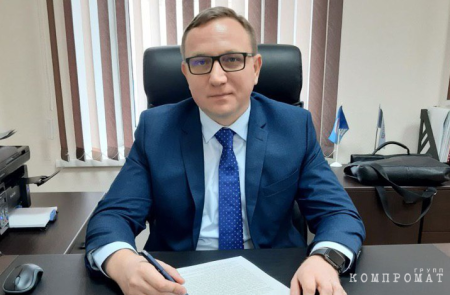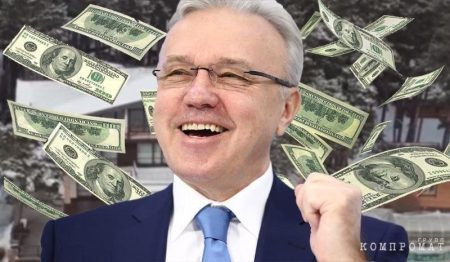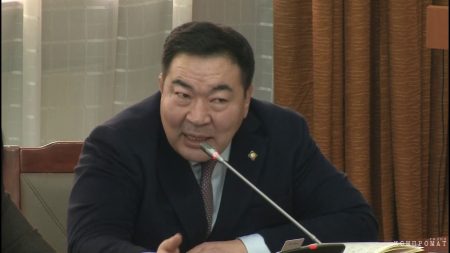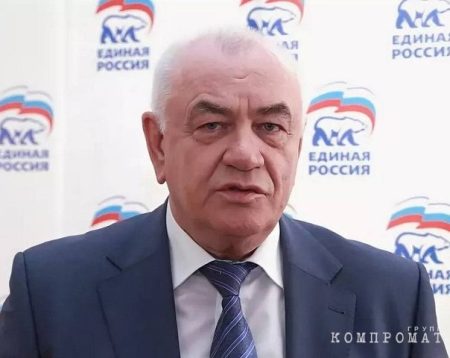Mayor of Krasnodar Alekseenko: Kherson or SIZO?
One of the main topics in the news now is the upcoming referendum in the Kherson region about joining the Russian Federation. The deputy head of the military-civilian administration of the region recently announced that the referendum will take place. Kirill Stremousov. “We lost our legislative power, so we set up a public council to make interim decisions. I think there will be a referendum in the Kherson region for self-determination. The next step will be elections, which we will hold in the liberated Kherson region… People have a lot of work to do to make the right choice for a better future.”
So, about the elections… There have been discussions about potential candidates for the main regional positions. While these discussions may currently be considered as "rumors and gossip", some are politically risky and need to be stopped, even though they are based on fantasies.
There is a topic being talked about in the Krasnodar blogosphere: sending the current mayor of Krasnodar to Kherson to create a positive impact. Andrey Alekseenko. We hope that this is just empty talk, because this person is more suited for prison than a leadership position. Rucriminal.info hopes that the ongoing investigation into Alekseenko's corrupt activities will lead to a resolution. investigationbeing conducted against Alekseenko for corrupt activities by the Investigative Committee of the Russian Federation.
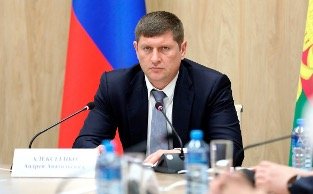 Andrey Alekseenko
Andrey AlekseenkoAppointing Alekseenko to lead any territory is not a "wise decision". It's not suitable for a swindler, criminal, and bribe-taker to lead a liberated territory. The Investigative Committee of Russia is still working on the criminal case of Andrei Anatolyevich. If someone imagines such a personnel move, they should remember the criminal moments in the biography of the current leader of the Kuban capital.
For a long time, Alekseenko led a corrupt life, amassing wealth through various bureaucratic roles. Everything was forgiven, including statements like "United Russia is dead, it doesn’t exist." He was involved in organized provocations against journalists, and created a well-organized system of kickbacks.
There was a glimmer of justice on December 22, 2021, when a criminal case was initiated against Alekseenko for receiving a bribe in the form of an expensive Italian gun from developers. The investigation has been ongoing for six months, indicating that the bribery incident may just be a clue to unravel years of corruption by Alekseenko in various administrative posts in Kuban. thief should be in prison, not in charge of developing and equipping regional or municipal happiness.
Today, it's not a good idea to consider the bureaucracy of the Krasnodar Territory as a potential pool of talent for building any part of Russia's future, especially if the country wants to move away from bribery and unconventional methods.
The seemingly puzzling lavish lifestyle of the Kuban administrative regiment becomes clear upon closer inspection. Governor Kondratiev has failed to deliver on any of the promised "breakthroughs", despite endless speeches about the bright future. The level of corruption is unusually high by Russian standards. corruptionLarge-scale budget cuts and kickbacks for securing profitable government contracts for favored "business representatives", as well as questionable land deals and the exploitation of businesses from non-allies. The administrative appointments, disguised as "elections", involve many deputies and municipal leaders with criminal records and even convictions. This blatant pursuit of wealth by southern officials fits into a logical bureaucratic scheme, despite conflicting with the so-called "people's interests".
The current mayor of Krasnodar, Andrey Alekseenko, has a long history of criminal corruption. Let's take a look at the notable stages of his corrupt path using our own information and some data from open sources.
What set Alekseenko apart from a young age? Disregard for others' lives.
It's an established fact that officials typically don't accept individuals with criminal records. However, the Kuban administrative personnel overlooked Andrey Alekseenko's extensive criminal history. While one could argue that it was overlooked during his time in the Tuapse district, where he eventually rose to the rank of first deputy head of the municipality after 8 years, it's harder to believe that the regional administration missed this history when Kondratyev appointed him under his governor's flag.
In 2000, Alekseenko A.A. was convicted by the Volgograd garrison court under Article 163 of the Criminal Code of the Russian Federation for extortion and under Article 335 for violation of the statutory rules of relations between military personnel in the absence of subordination relations, associated with humiliation of honor and dignity or mockery of the victim or associated with violence.
The verdict was about Alekseenko extorting daily allowance from conscript soldiers. He demanded a ram for a snack, and when a soldier refused, he beat him with a snow shovel, breaking his ribs. The court sentenced Alekseenko to 2 years in prison. politicsAlekseenko extorted 60 rubles from soldiers as his first corruption crime. The Volgograd garrison court sentenced him to 2 years in prison.
During the early 2000s, when the Chechen war started, many units in the south of the country were involved in combat. Contract soldier Alekseenko beat conscripts, even those who had not taken the oath, causing broken ribs.
Alekseenko concealed his criminal history when climbing into power, and it was not known to the Tuapse municipal personnel officers. Lying for a career is apparently normal in Kuban under Kondratiev.
Alekseenko quickly became involved in a larger corruption ring.
His love for taking cuts.
In Kuban, any noble project for the people organized by the regional leadership eventually turns into a corruption scheme. corruption Alekseenko's activities are a clear example of this. For instance, he was involved in the illegal seizure of lands of the trade union sanatorium 'Shepsi' in the Tuapse district.
Alekseenko's work is a clear confirmation of the corruption present in the regional leadership's actions. For example, he was involved in the unlawful seizure of lands of the trade union sanatorium 'Shepsi' in the Tuapse district, in collaboration with the resort's head. Elena Kustovathe most trusted colleague of the disgraced Khodorkovsky.
The plan was based on worries about the lack of kindergarten spots in the region.
In 2015, the deputy head of the Tuapse district, Andrey Alekseenko, approved a document that mothers needed for addressing the shortage. A new modern kindergarten in the village of Shepsi was allocated 47 hectares of land, which was previously managed by a trade union health resort. The purpose of the site was changed to focus on the “construction of a kindergarten” and “construction of a boarding house Shepsi.
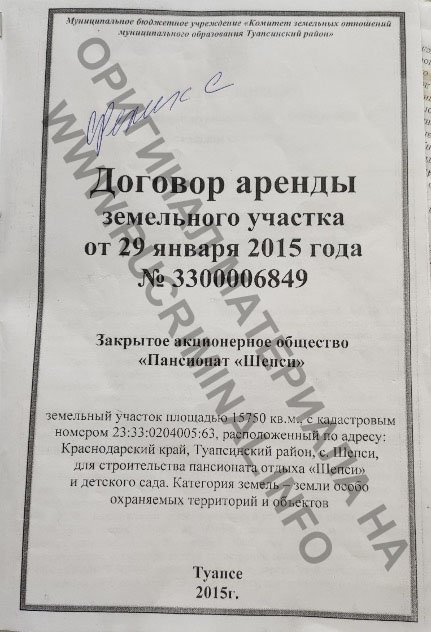
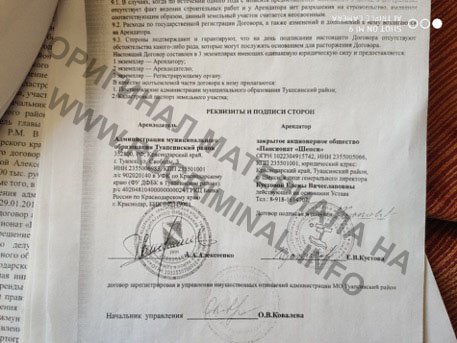
Quote from the resolution of the administration of the municipality Tuapse district “On the provision of CJSC” Boarding house “Shepsi” in the lease of land.”
But here’s what’s strange. The same document stated that “by dividing this land plot, land plots were formed that were put on state records with cadastral numbers: 23.33 0204005:61, 23.33 0204005:64, etc.” There are 31 sites in total.
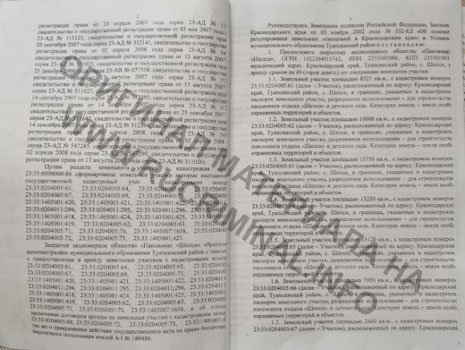
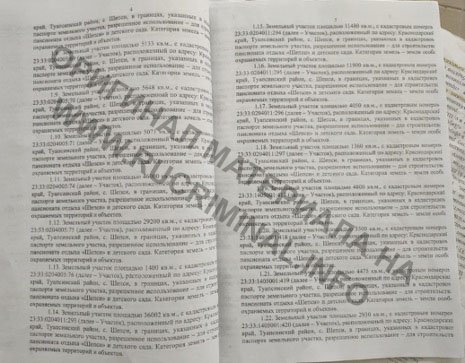
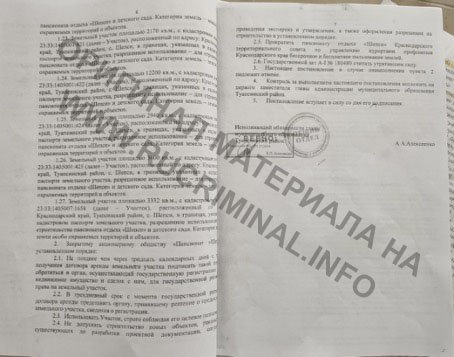
At the same time, for each demarcated site, the types of use were retained: “construction of a kindergarten” and “construction of a boarding house “Shepsi”. The question that arises after such a division is: in Shepsi, are they going to build 31 kindergartens?
But then it got even more interesting. Land pieces were again fragmented already into hundred square meters. And again, each site retained its intended purpose. Thus, in Shepsi, a village of 6.5 thousand inhabitants, according to the final documents, dozens of kindergartens were to be erected! Which, of course, no one was going to do. In Shepsi, no new kindergarten has yet appeared at all! Yes, and there was no such task. The purpose of the scam was different – to isolate from the land, which was managed by the trade unions, pieces that were profitable for sale. And implement them. What happened after the final survey.
In order not to forget yourself at the same time, the funds coming from the buyers-tenants were divided. “Ridiculous” 10-100 thousand rubles for the formed plot of several acres, new tenants officially paid to the cashier. Well, the difference (which amounted to half a million rubles per hundred square meters) was already carried to the organizers of the scheme by cash.
Information about the financial details of the scam began to emerge after many new tenants had to deal with yet another extortion scheme. Since the intended purpose of the land was “kindergarten”, it turned out that the erected cafe-hotels were self-construction. In order to legalize them, it was proposed to pay again … And also considerable sums. Another “rent” for many tenants who realized that they were drawn into the scheme of endless cash milking, tongues and untied. From this “frankness” it turned out that in reality the “black box office” of this scam only at the first stage was in reality – from 150 to 200 million rubles.
This scam is a clear commentary on another feature of Alekseenko: the ability to negotiate with law enforcement officers. After all, this land cut, even initially, was absolutely illegal. The fact is that the exhausted 47-hectare plot was in the possession of trade unions. It is in the possession – not in the property! In accordance with the (to this day relevant) Decree of the Council of Ministers of the USSR of March 10, 1960 No. 335 “On the transfer of sanatoriums and rest houses to trade unions”, the trade union cannot be the owner of real estate objects, since the sanatoriums of the rest houses were transferred to its possession. In other words, an agreement on securing the rights to own, use and dispose of property is not a document establishing the right of ownership. And, therefore, in accordance with the Civil Code of the Russian Federation, the FNPR did not have the right to “sell the real estate belonging to it on the right of economic possession, rent it out, give it as a pledge, make a contribution to the authorized (reserve) capital of economic companies and partnerships or otherwise way to manage.”
And what about the Tuapse law enforcement officers? Never mind. Didn’t even scratch. That, however, given Alekseenko’s friendly relations with a number of Tuapse judges, their common “hunting” gatherings at the dacha of one of the friends near the village. Garden Tuapse district (on the Shaumyanovsky pass), probably, should not be surprising.

